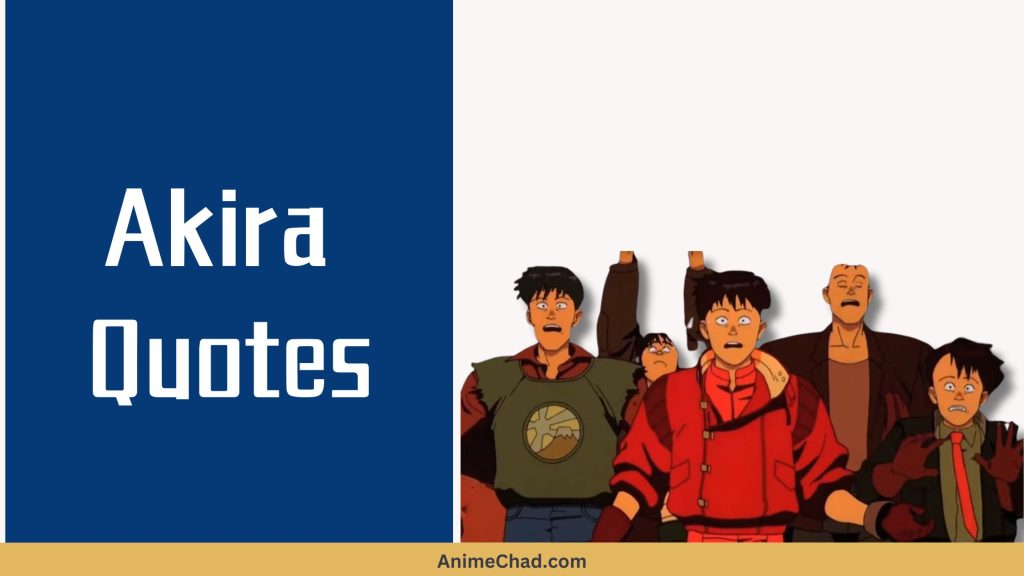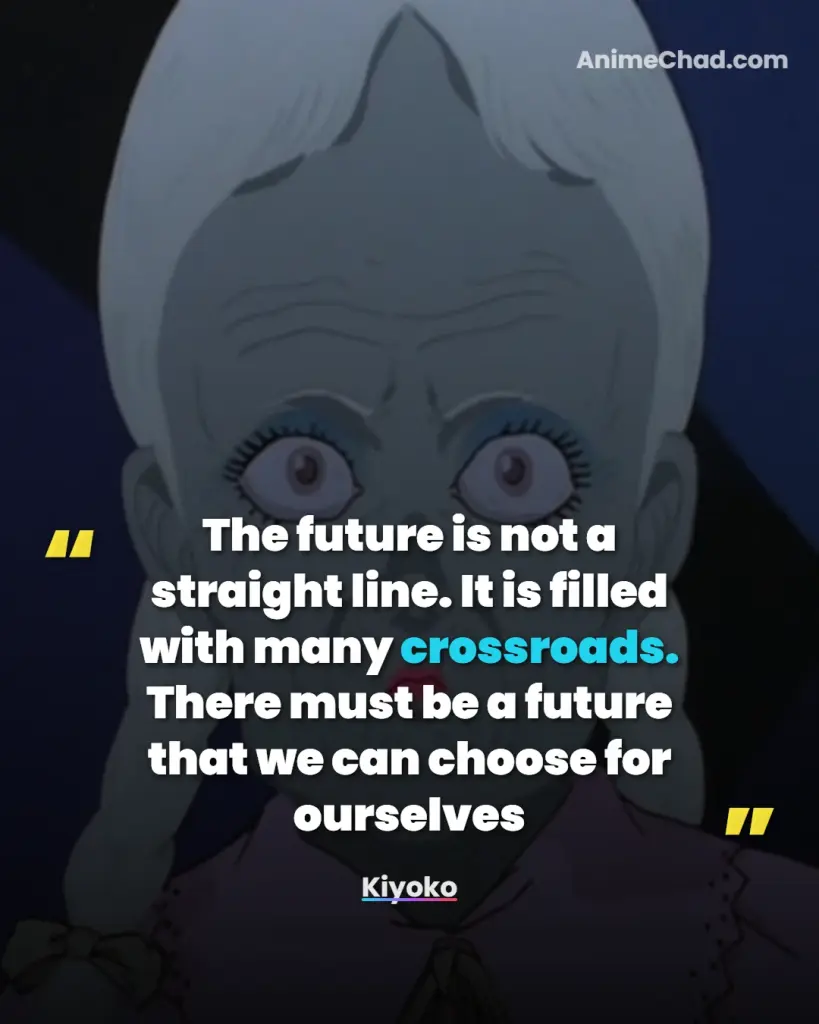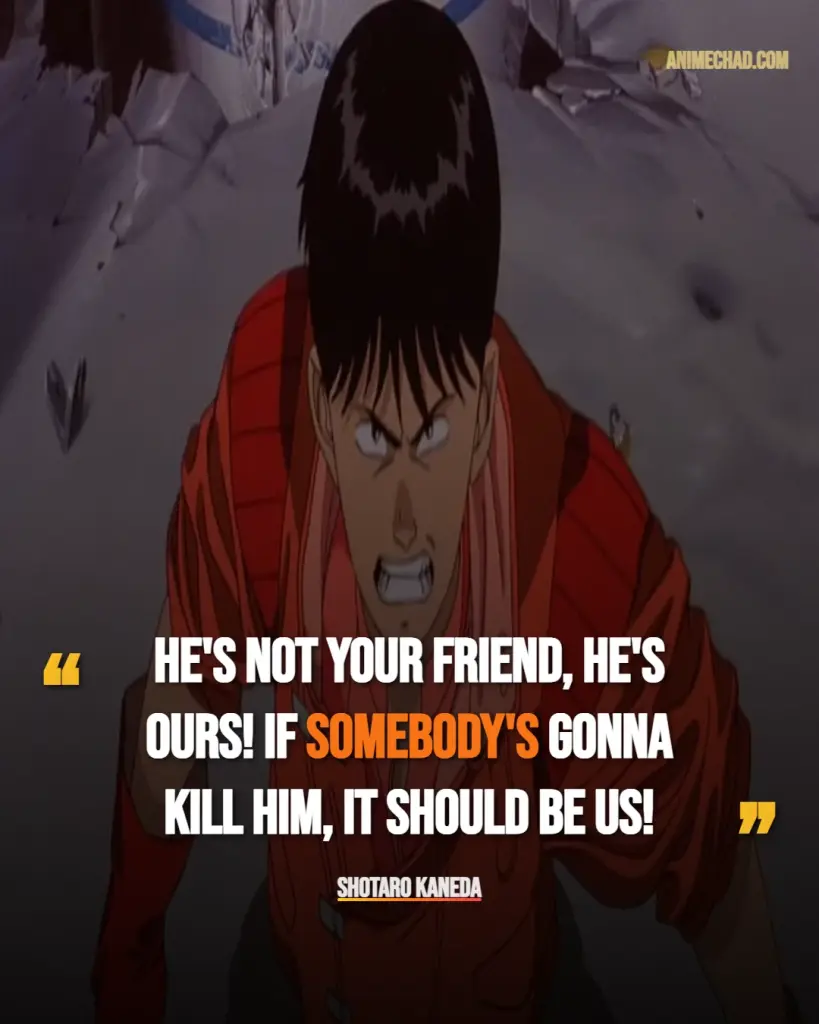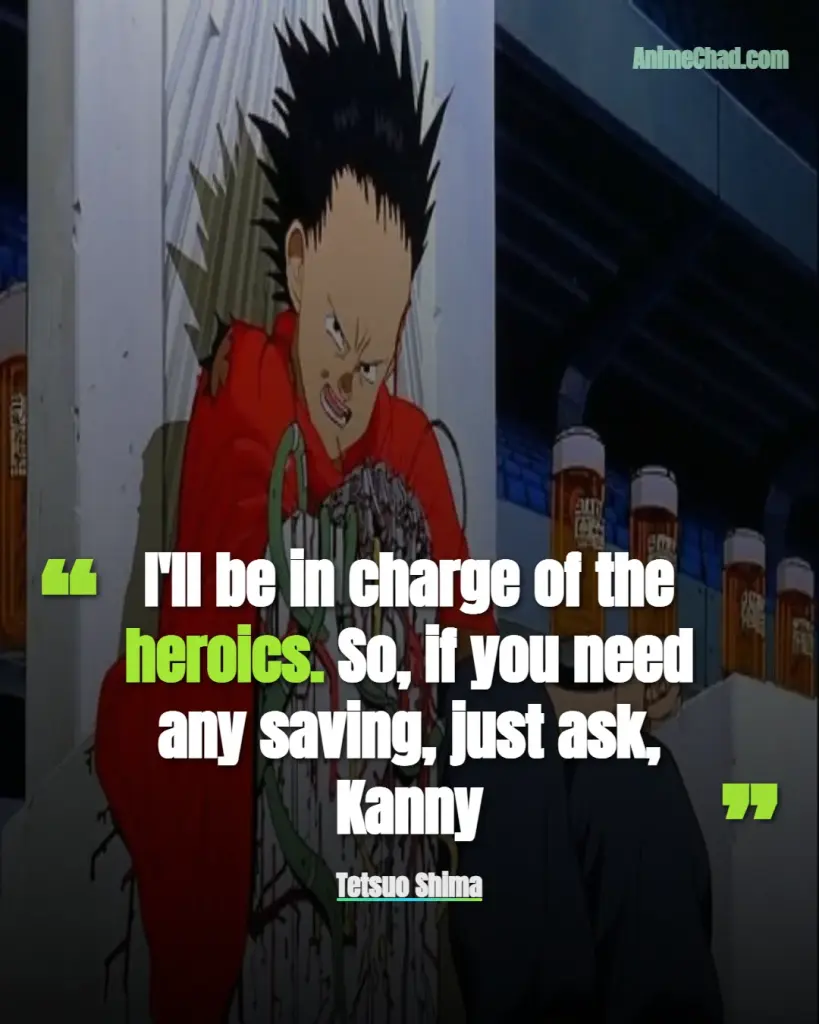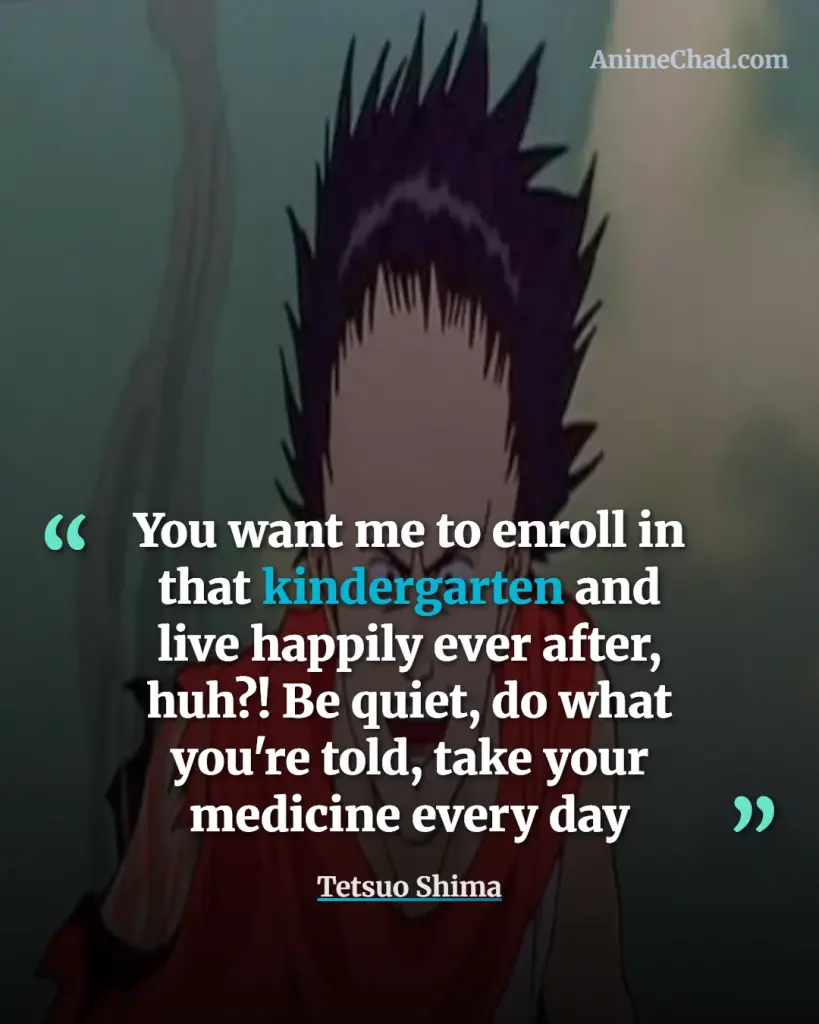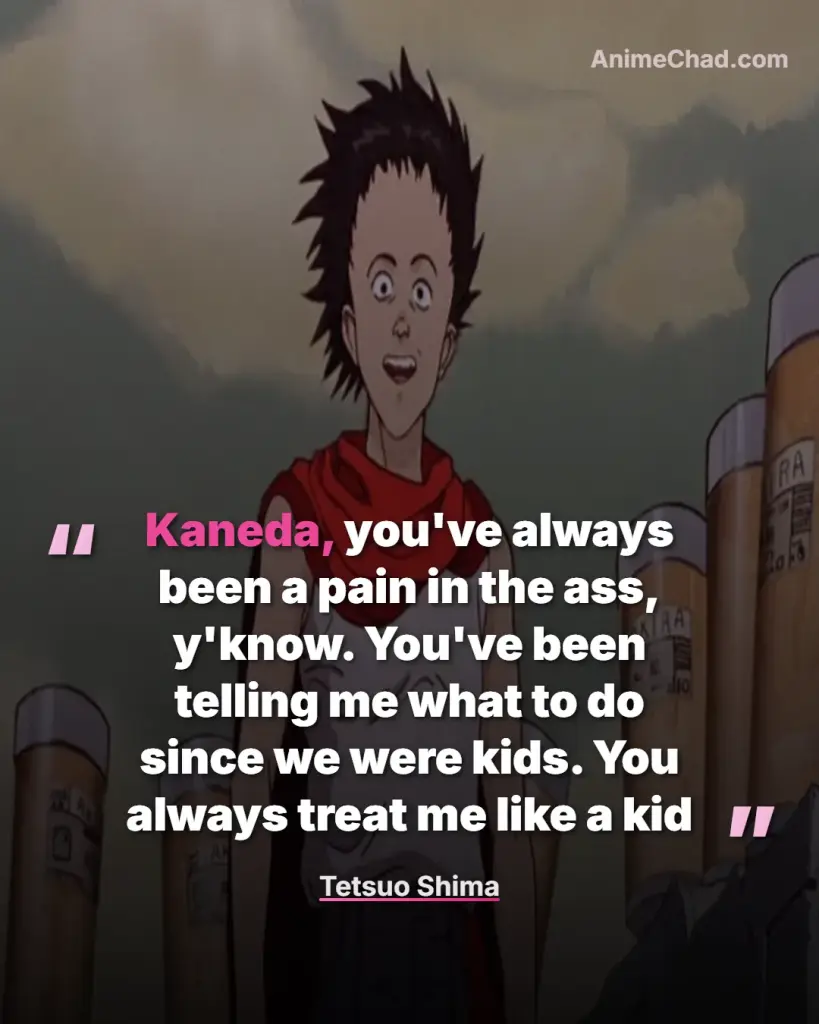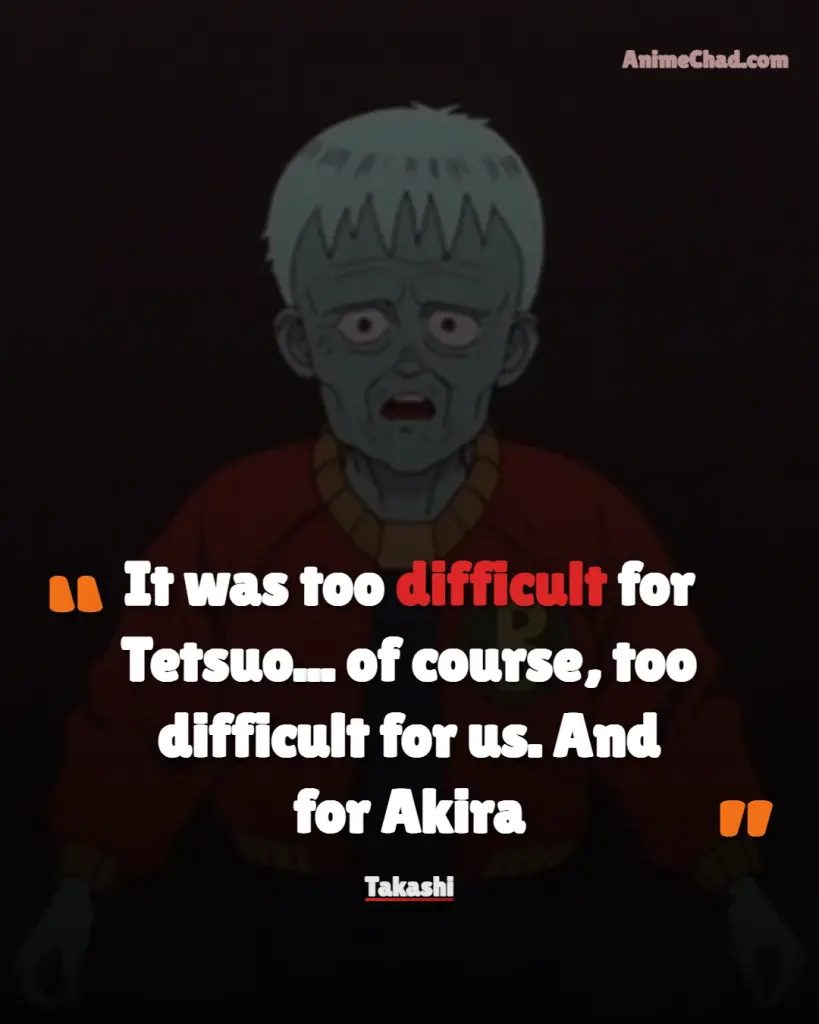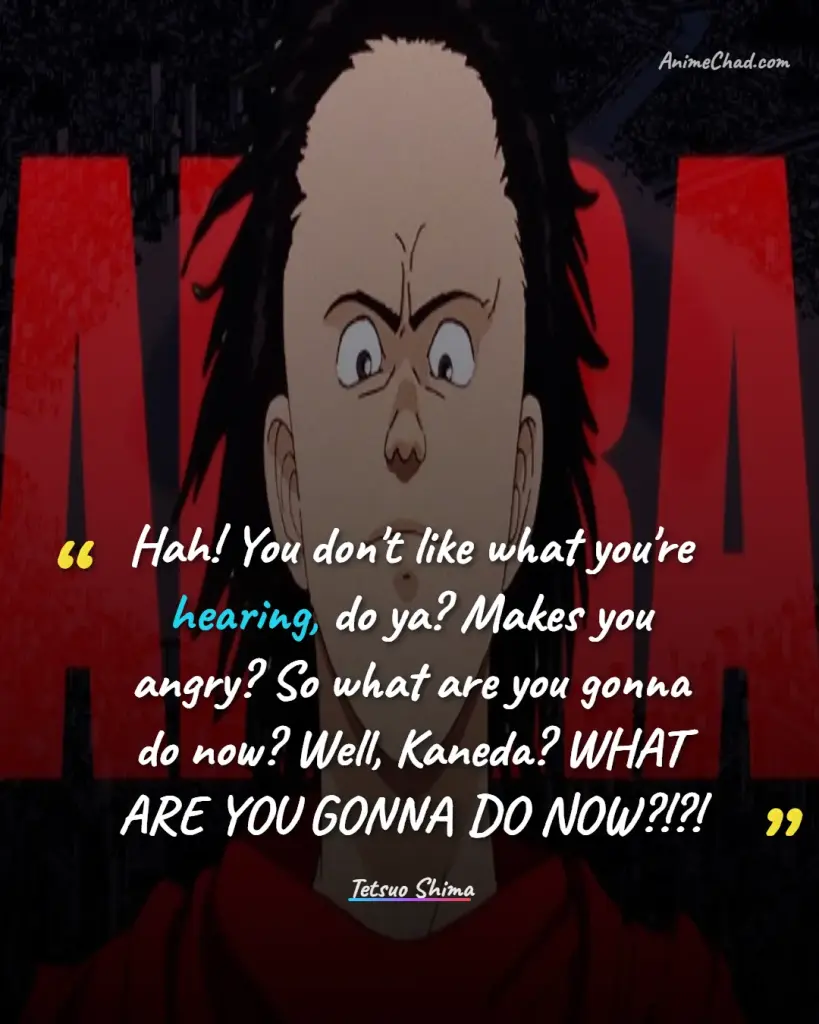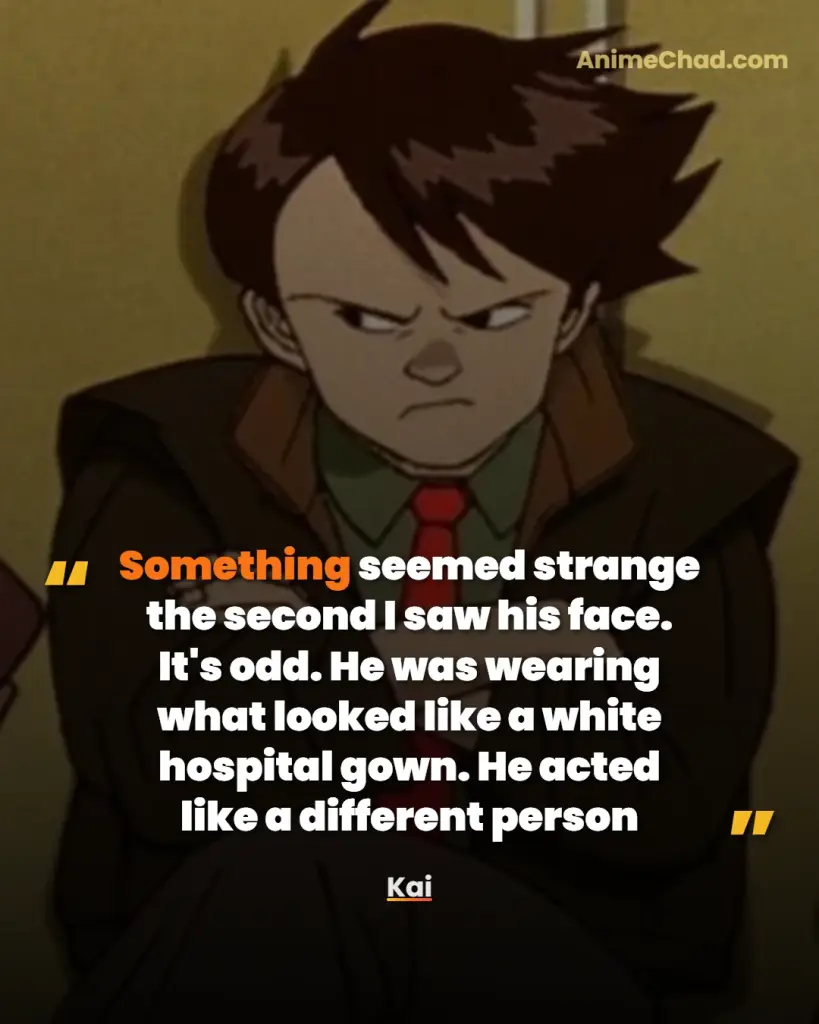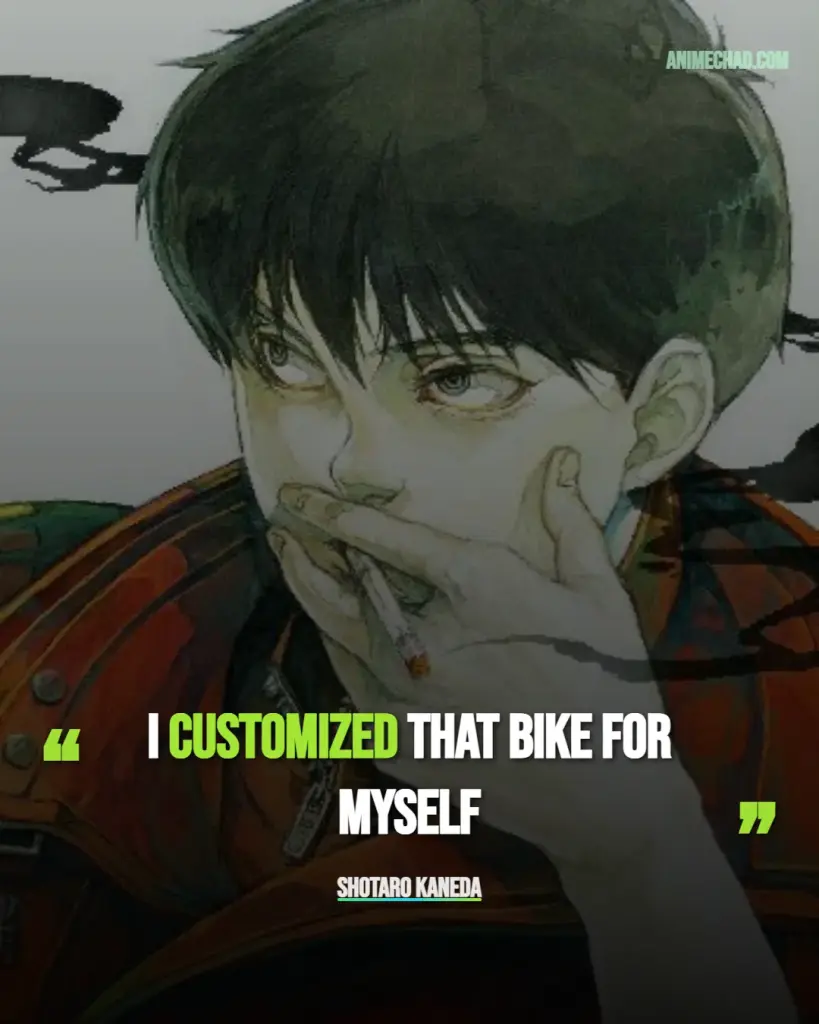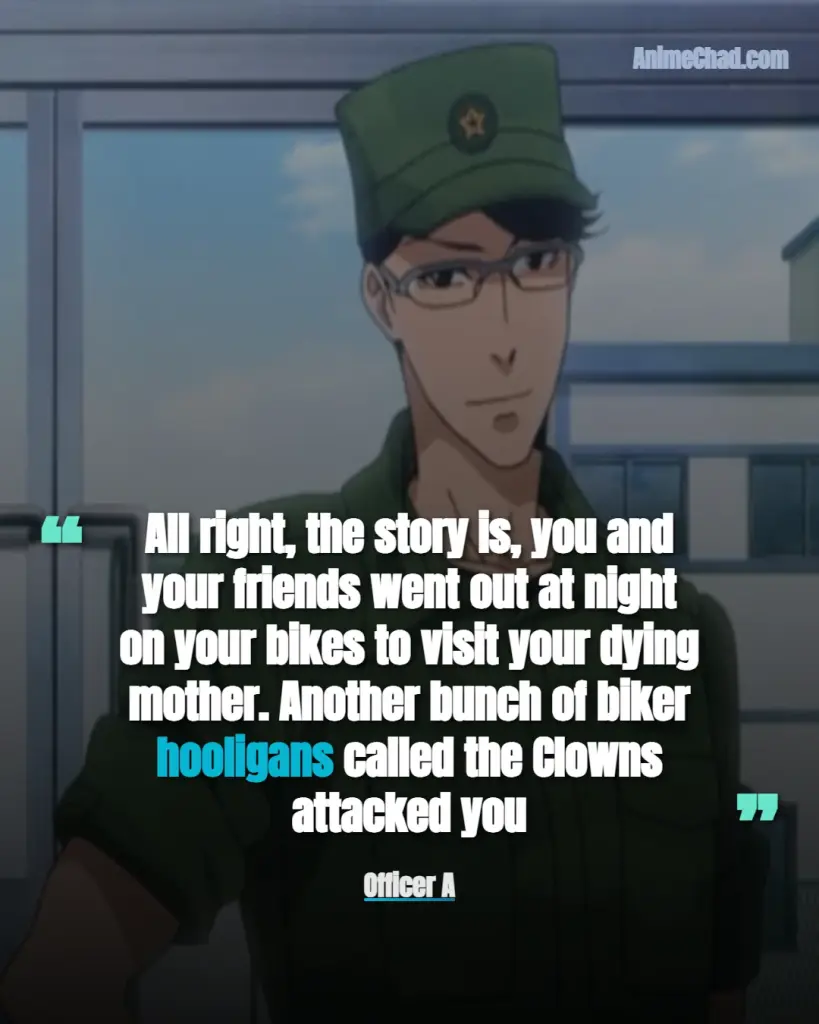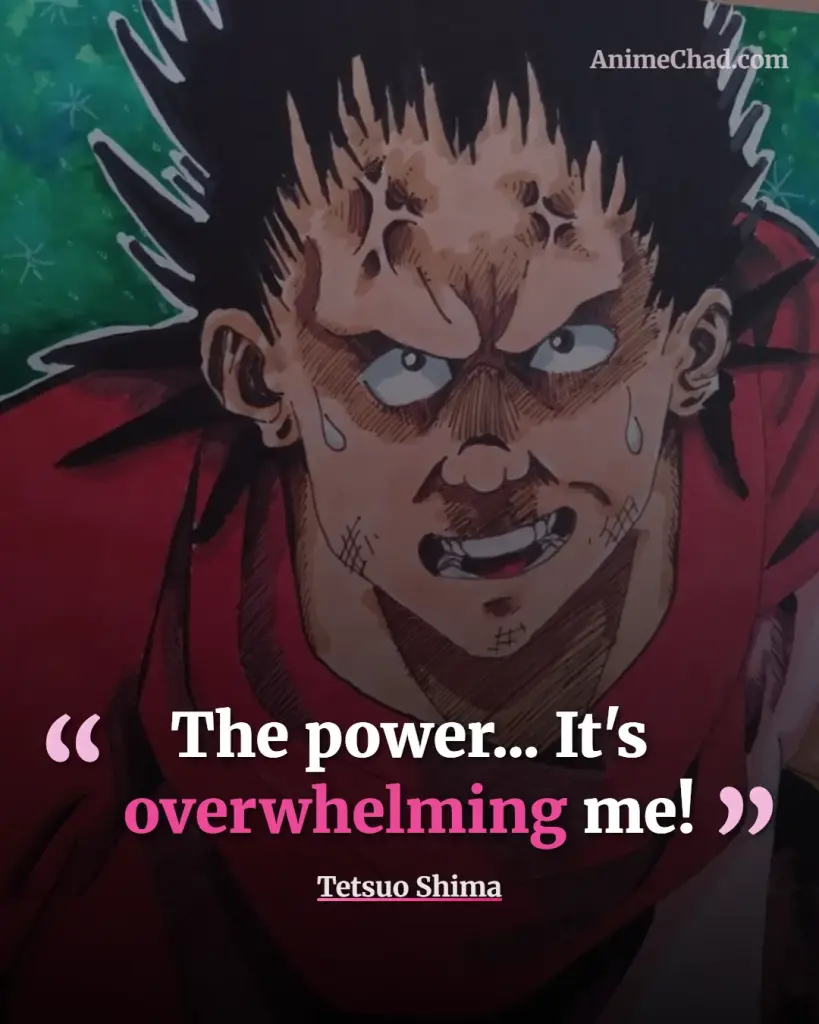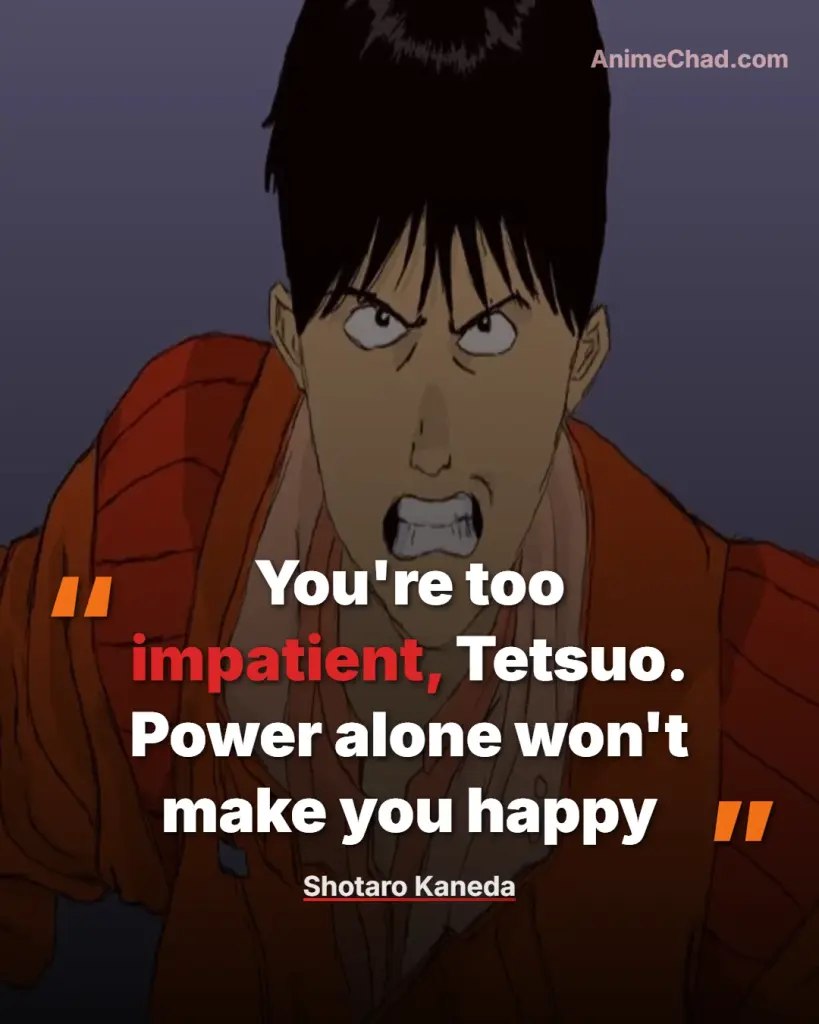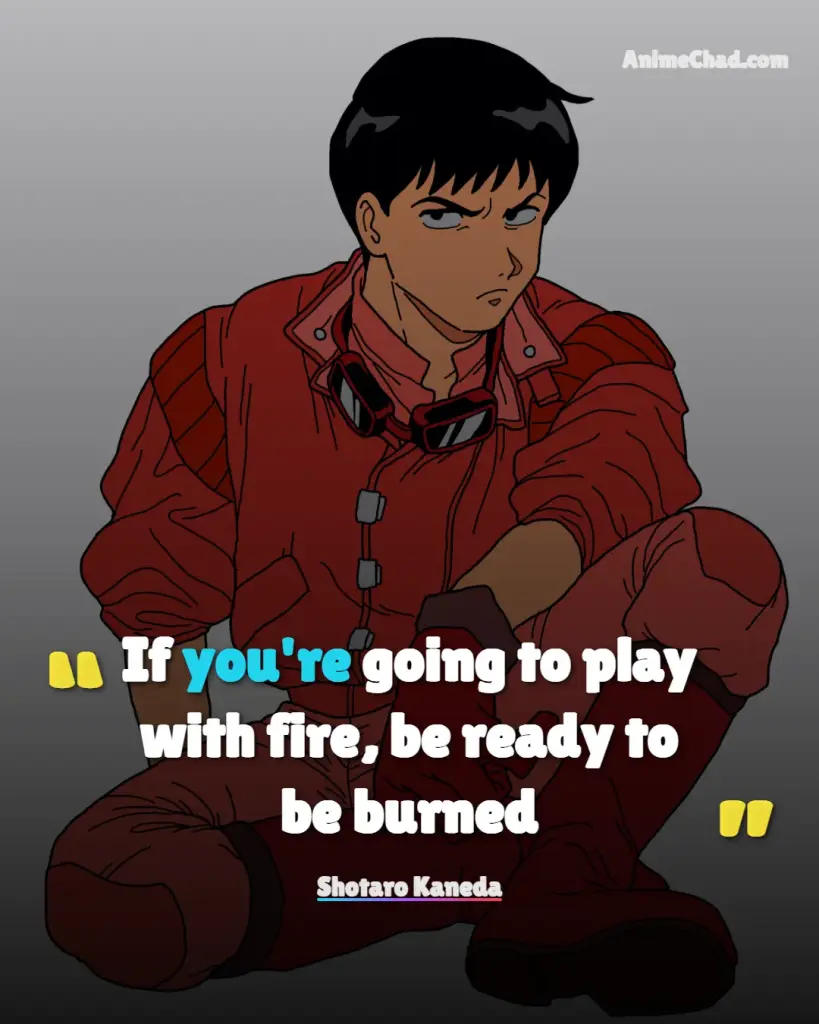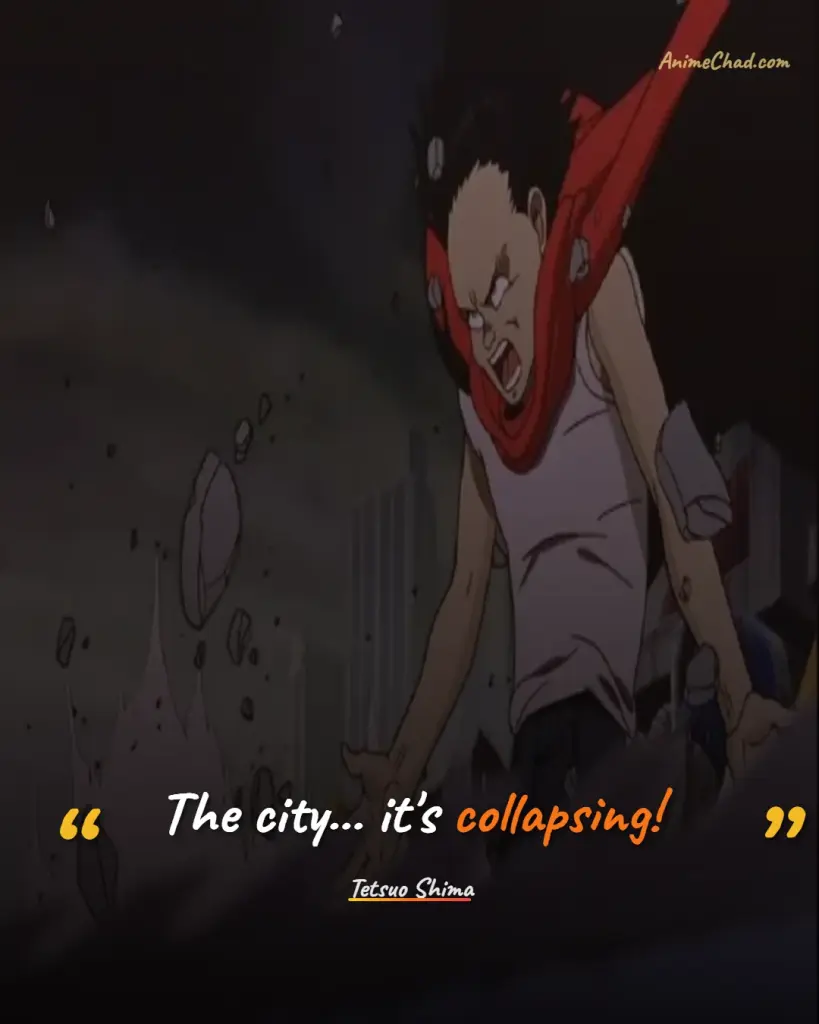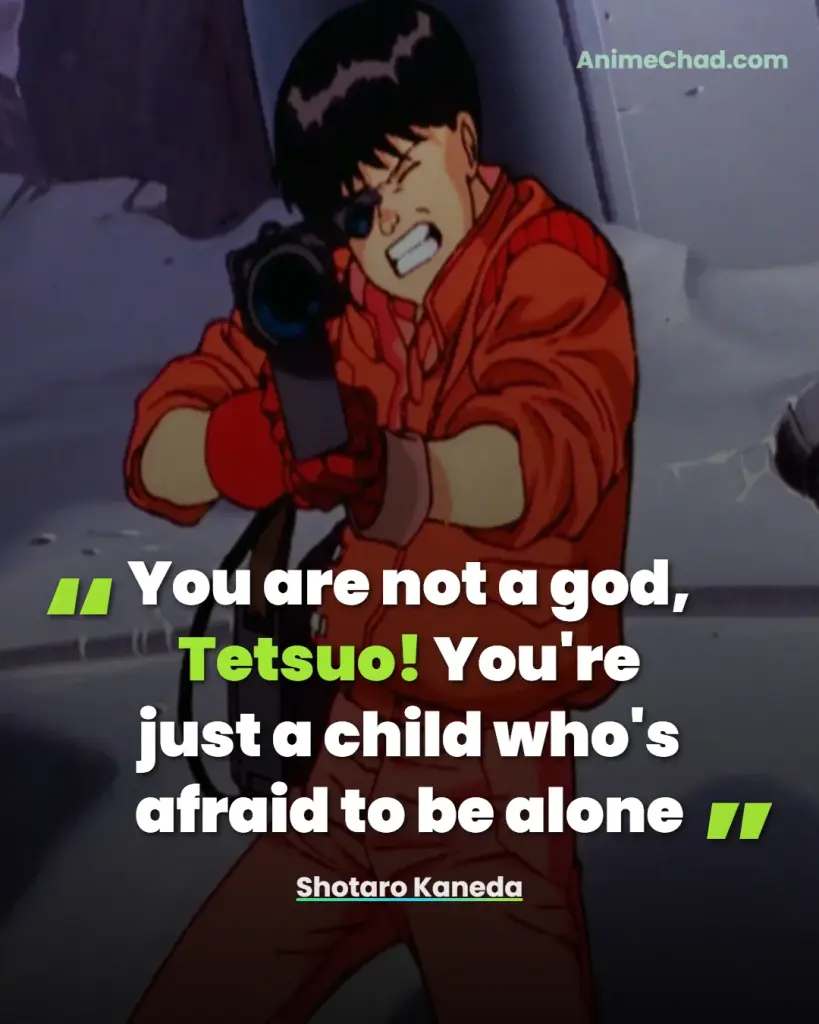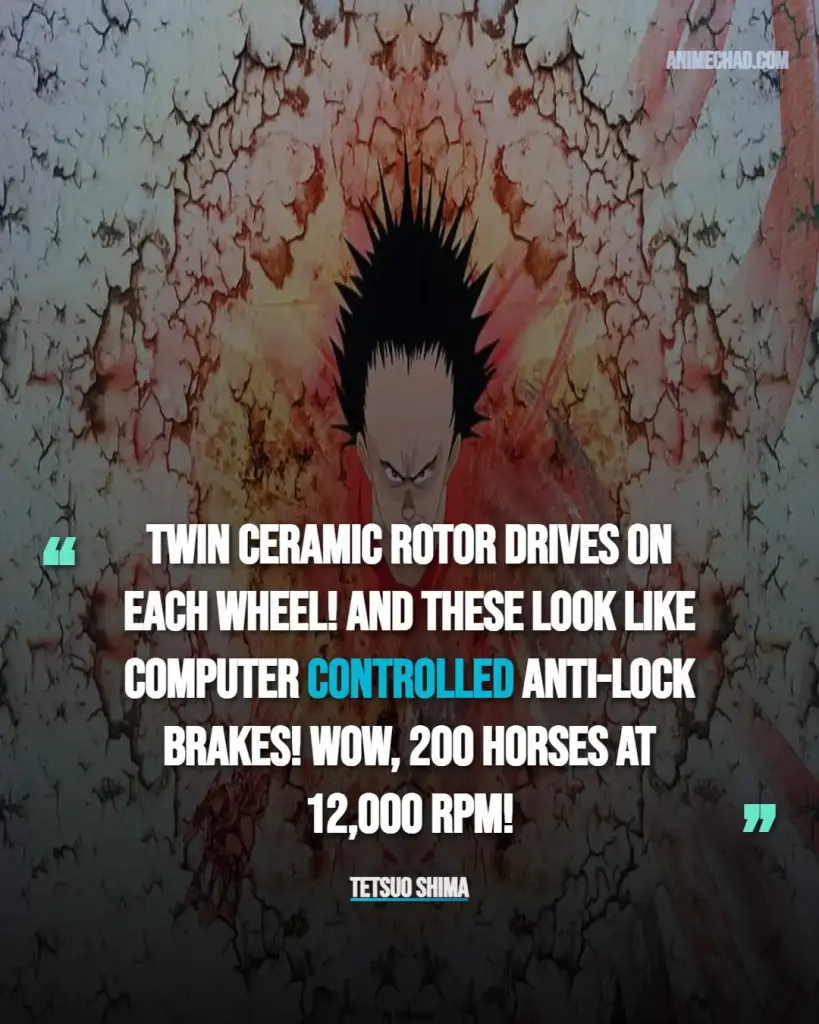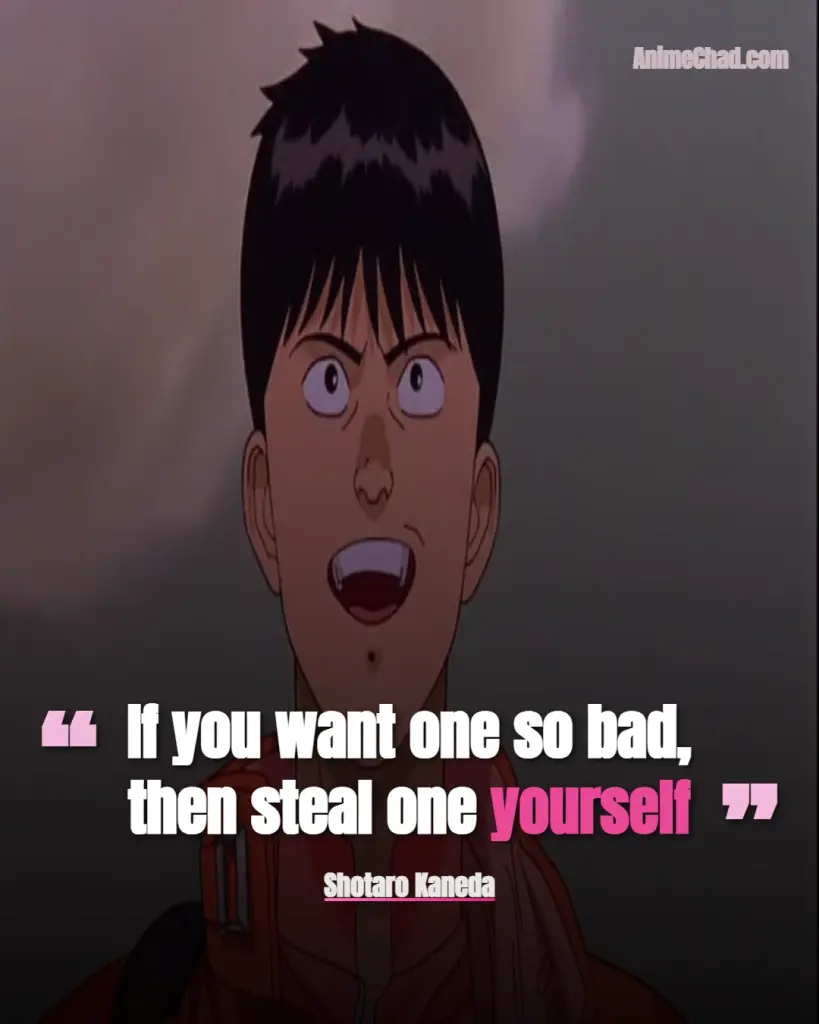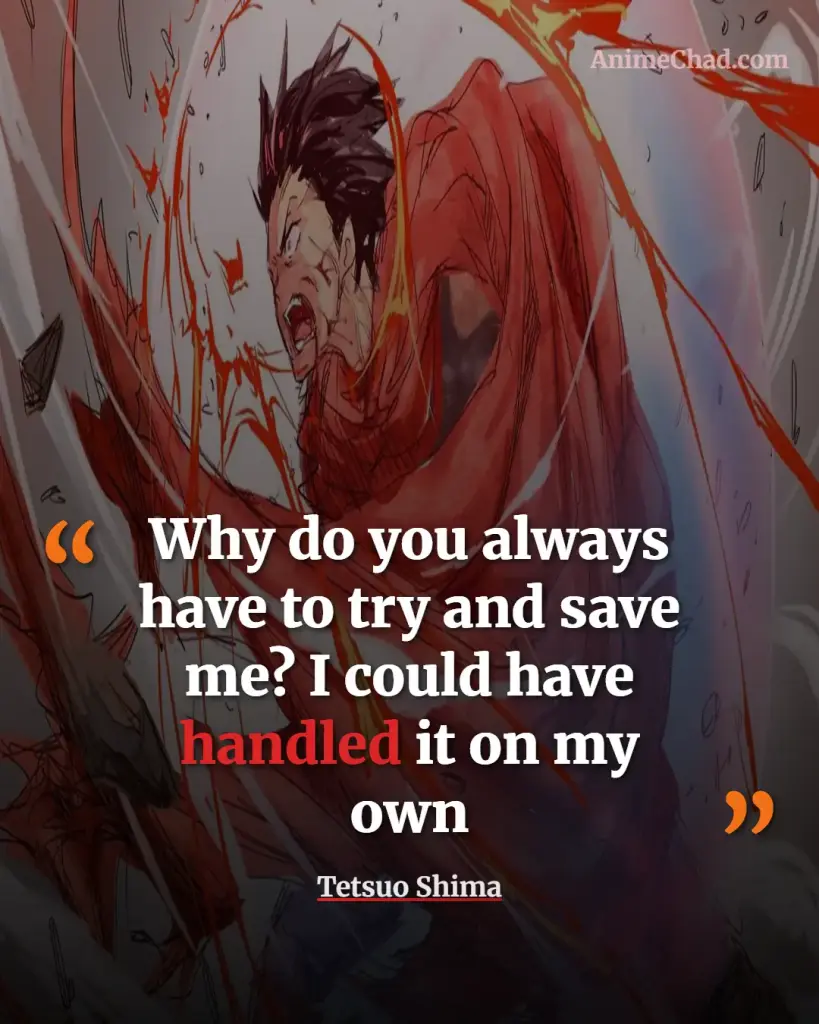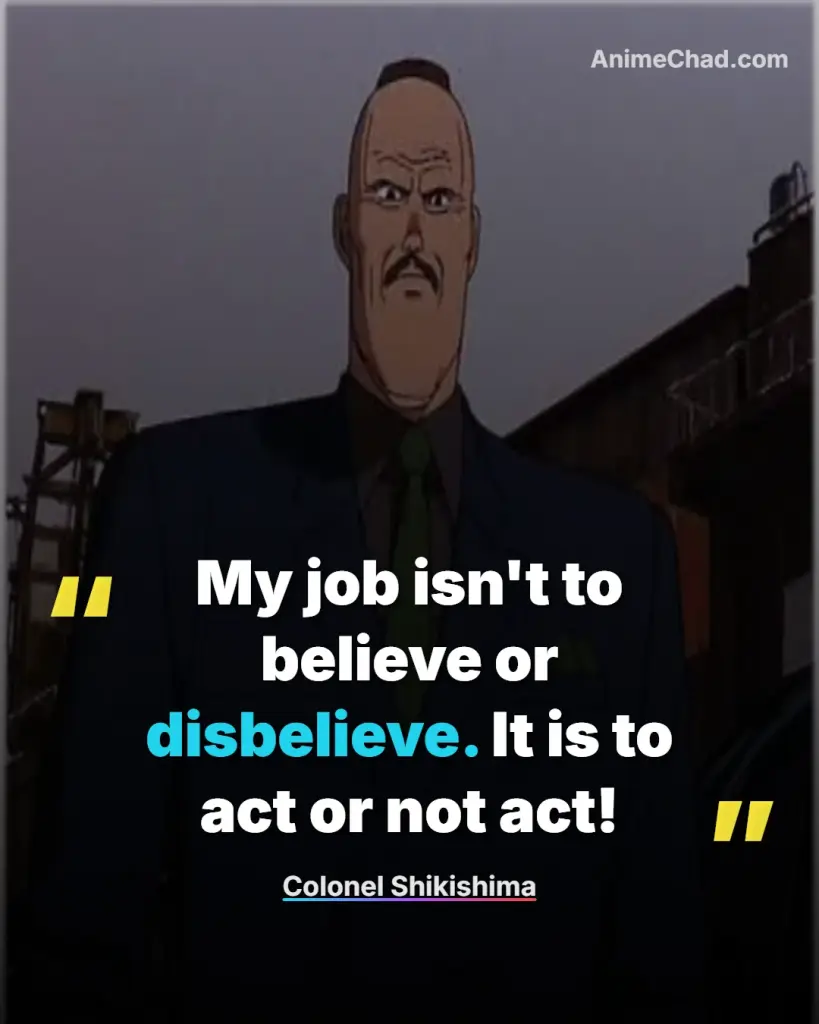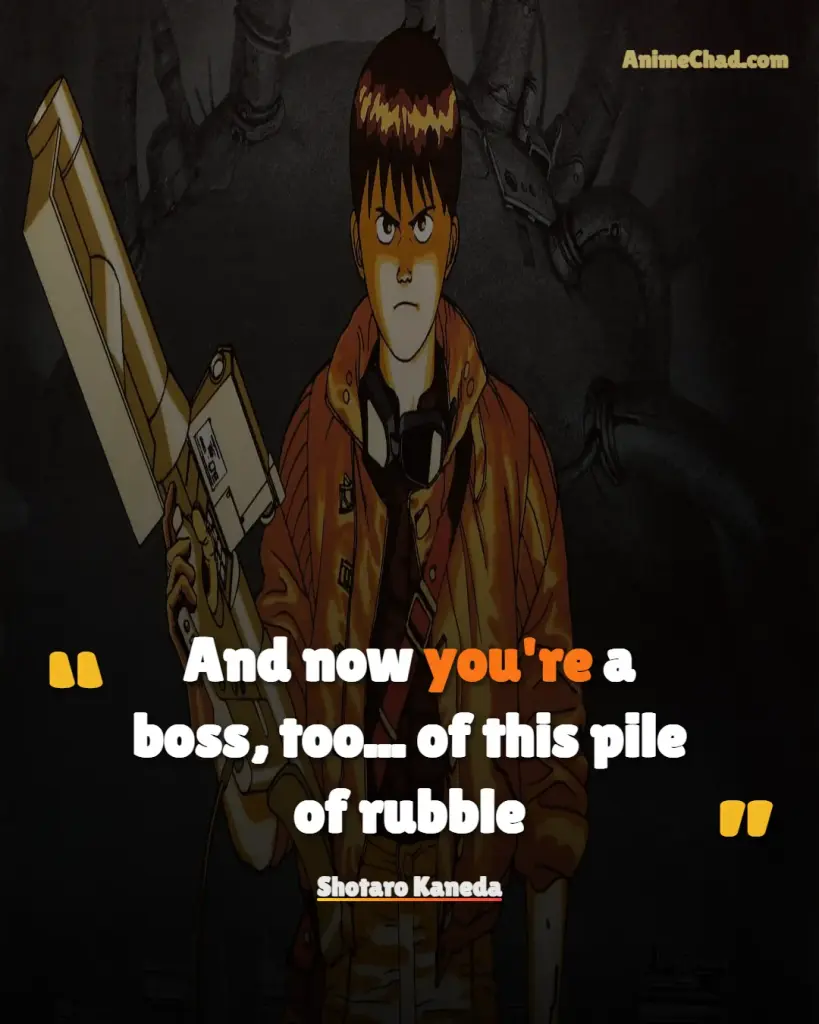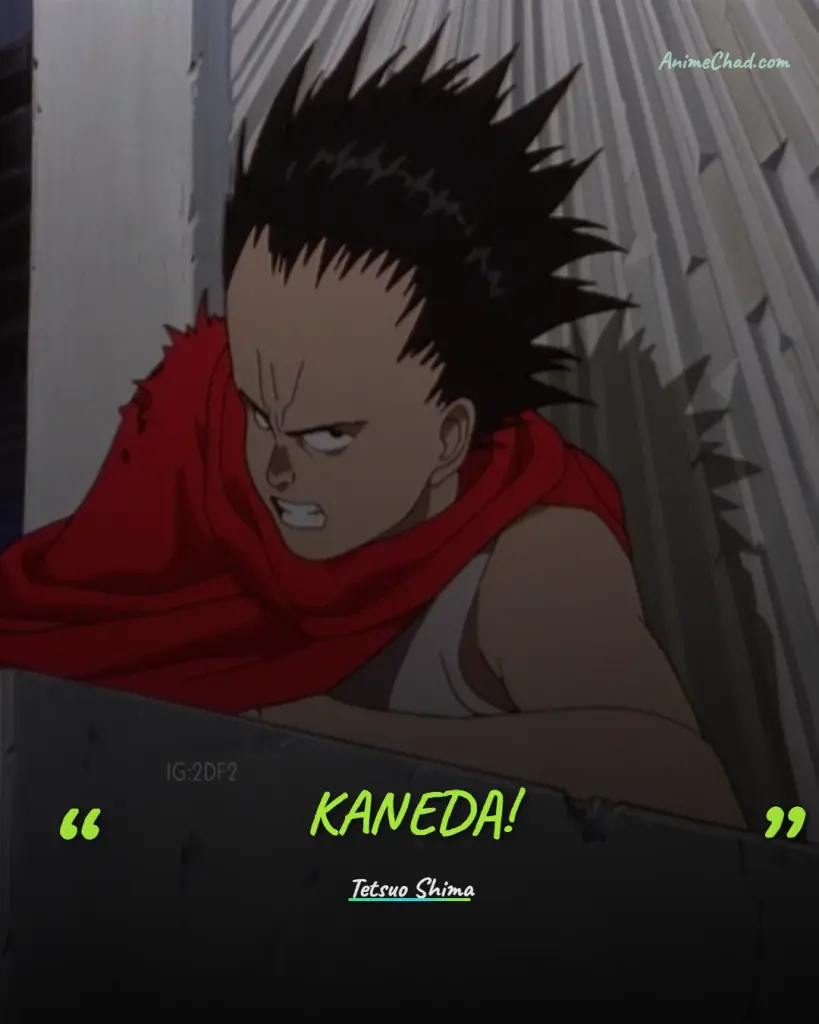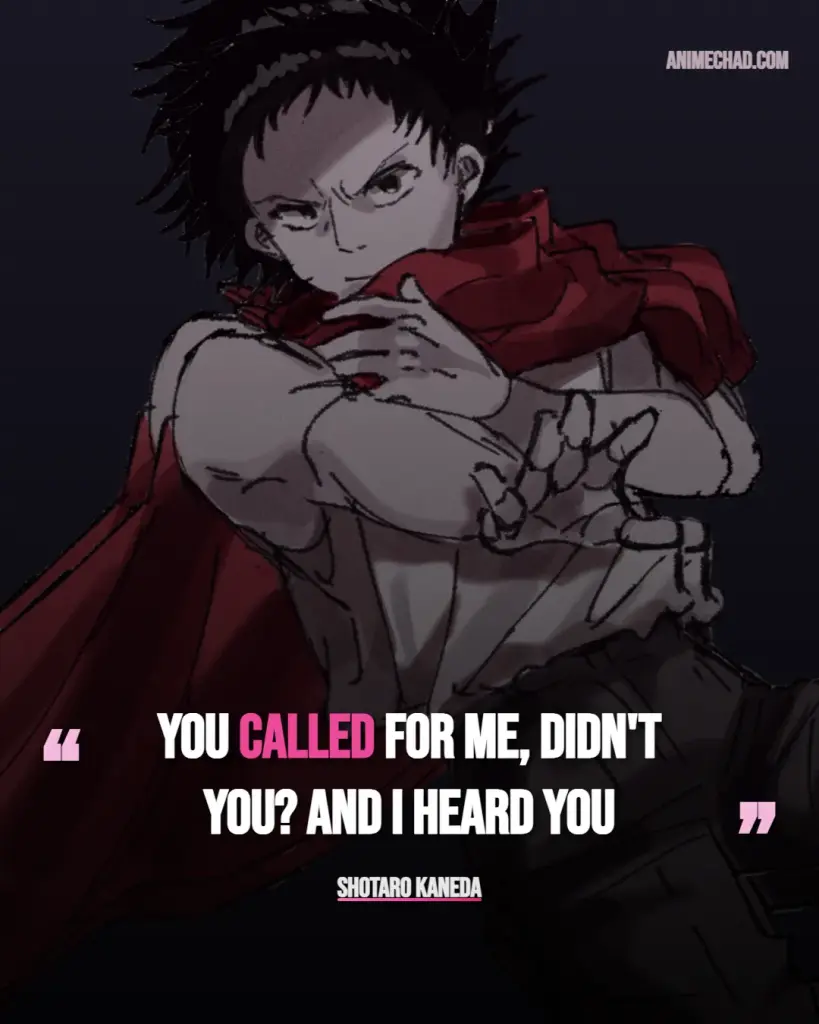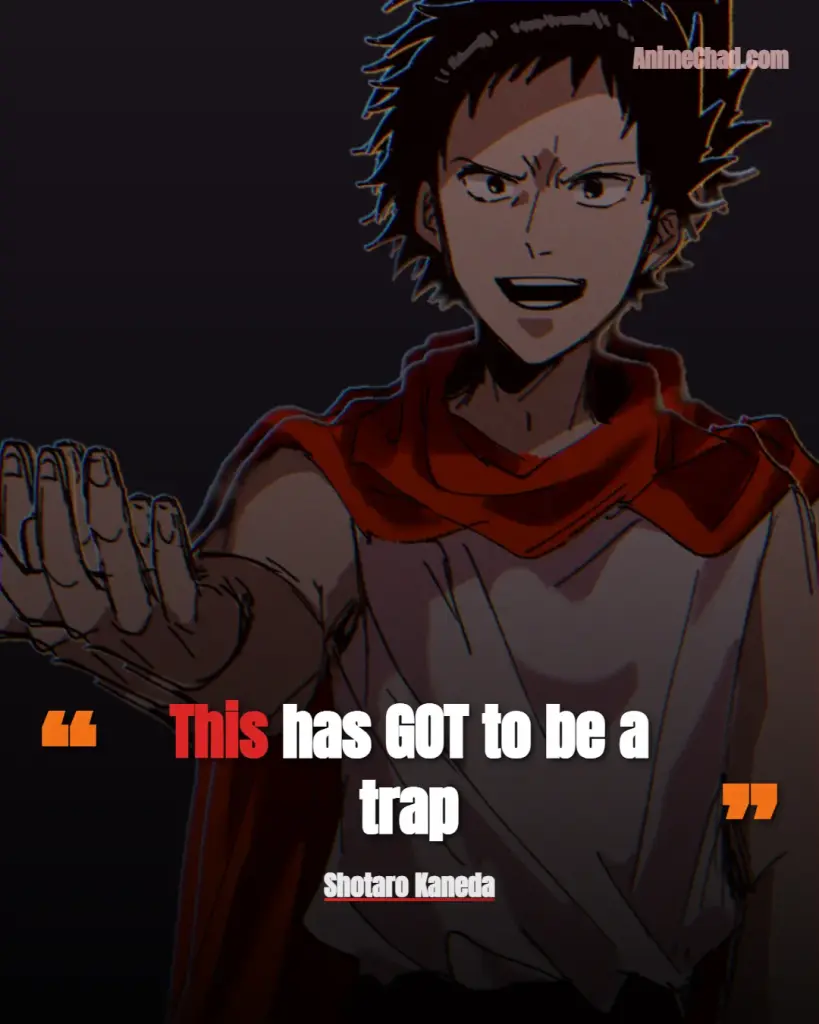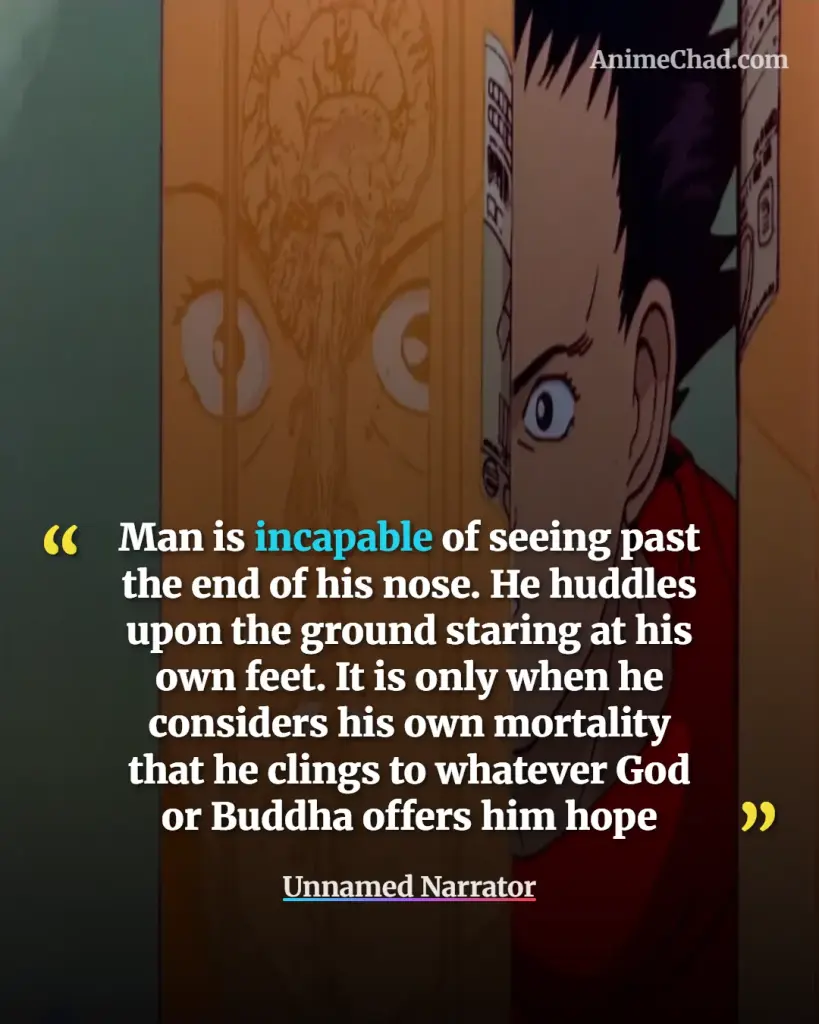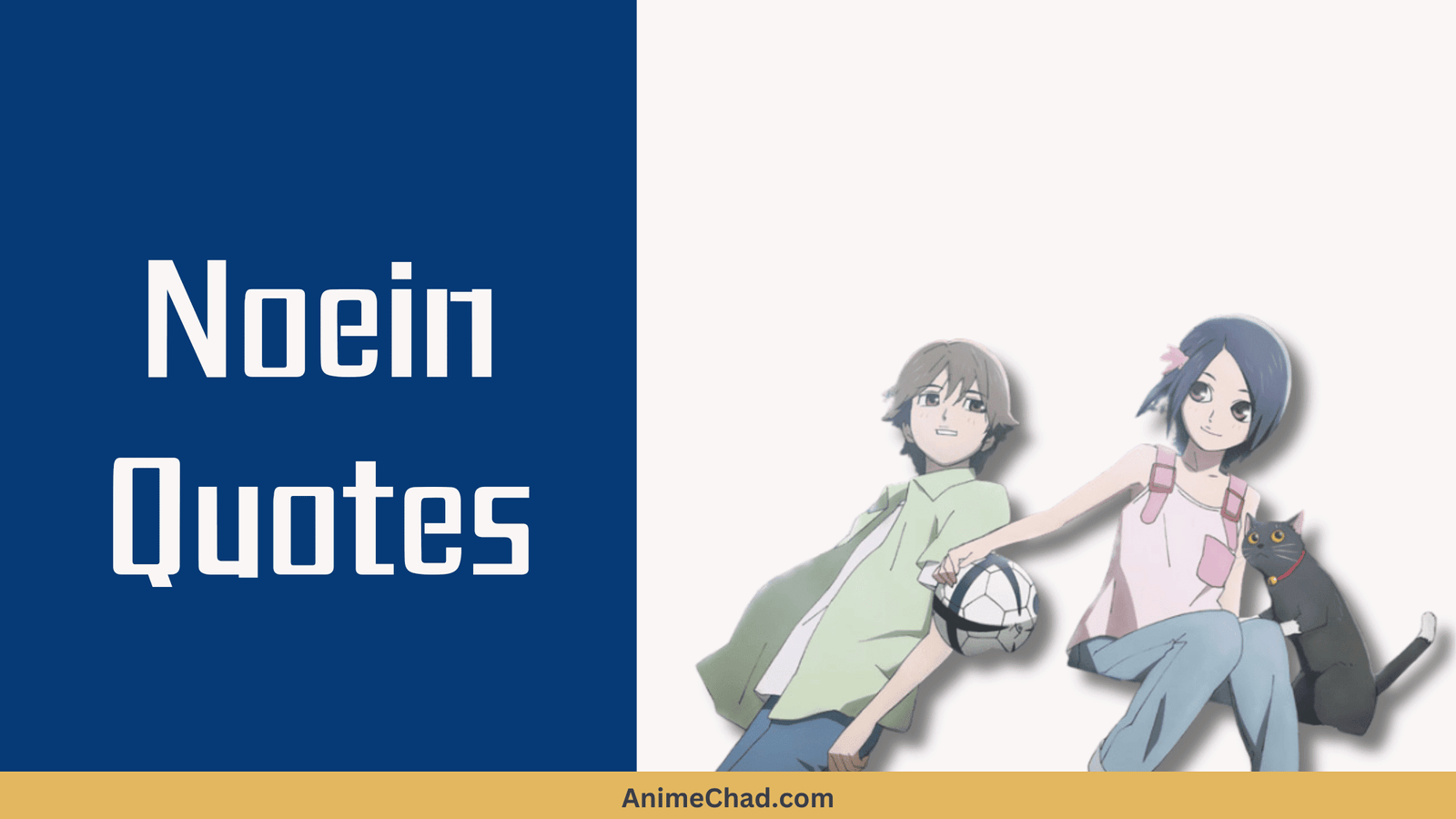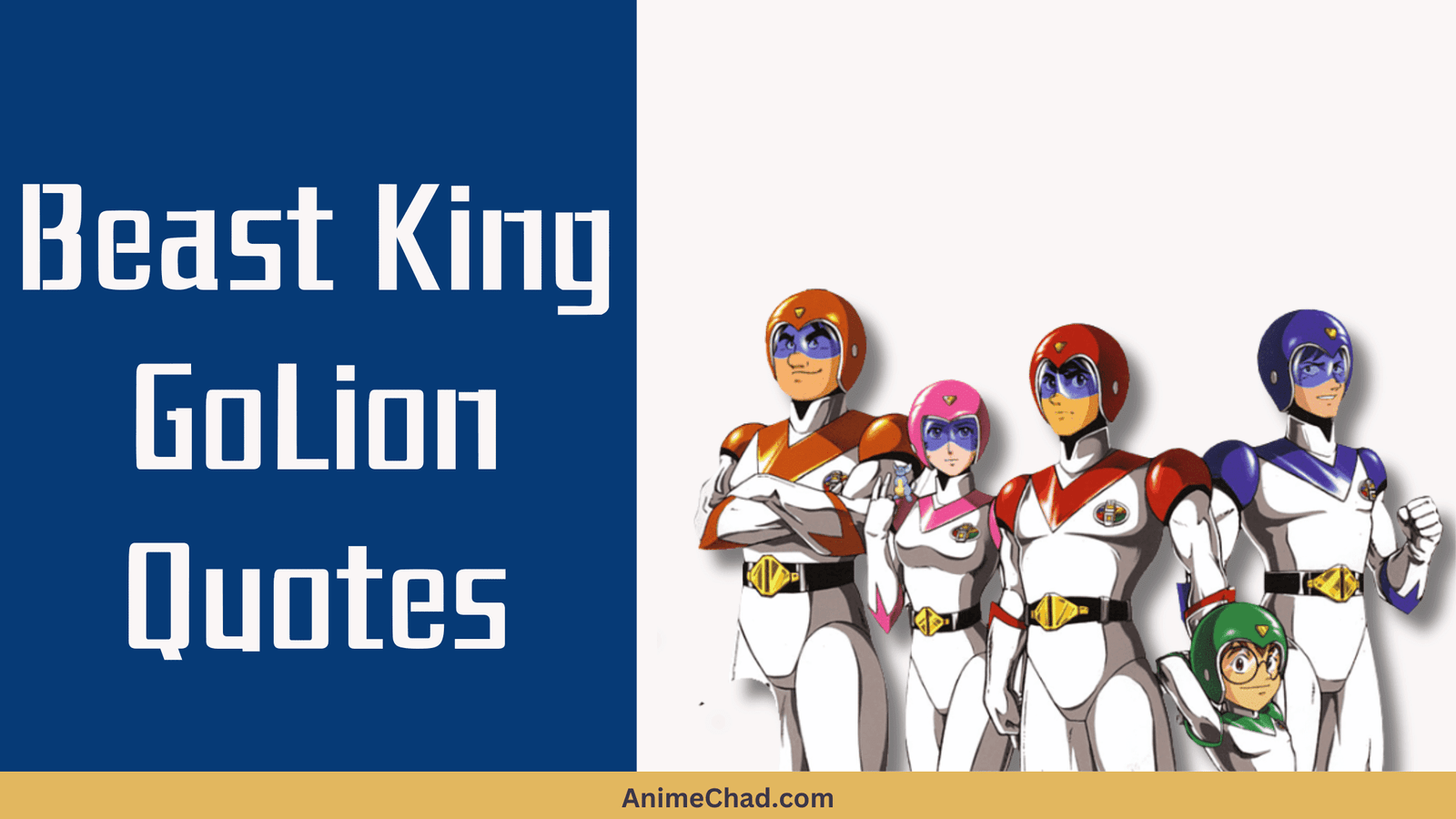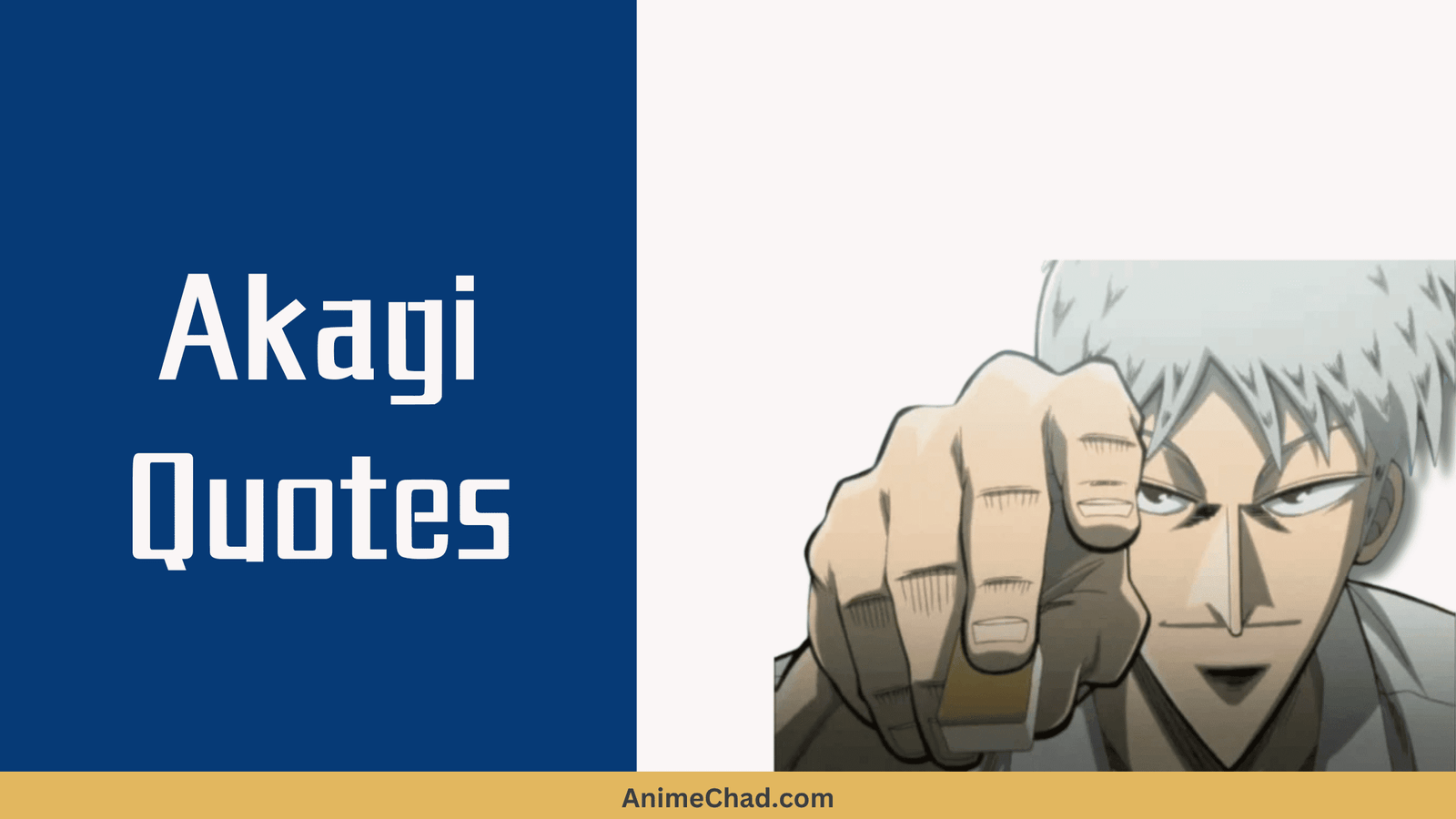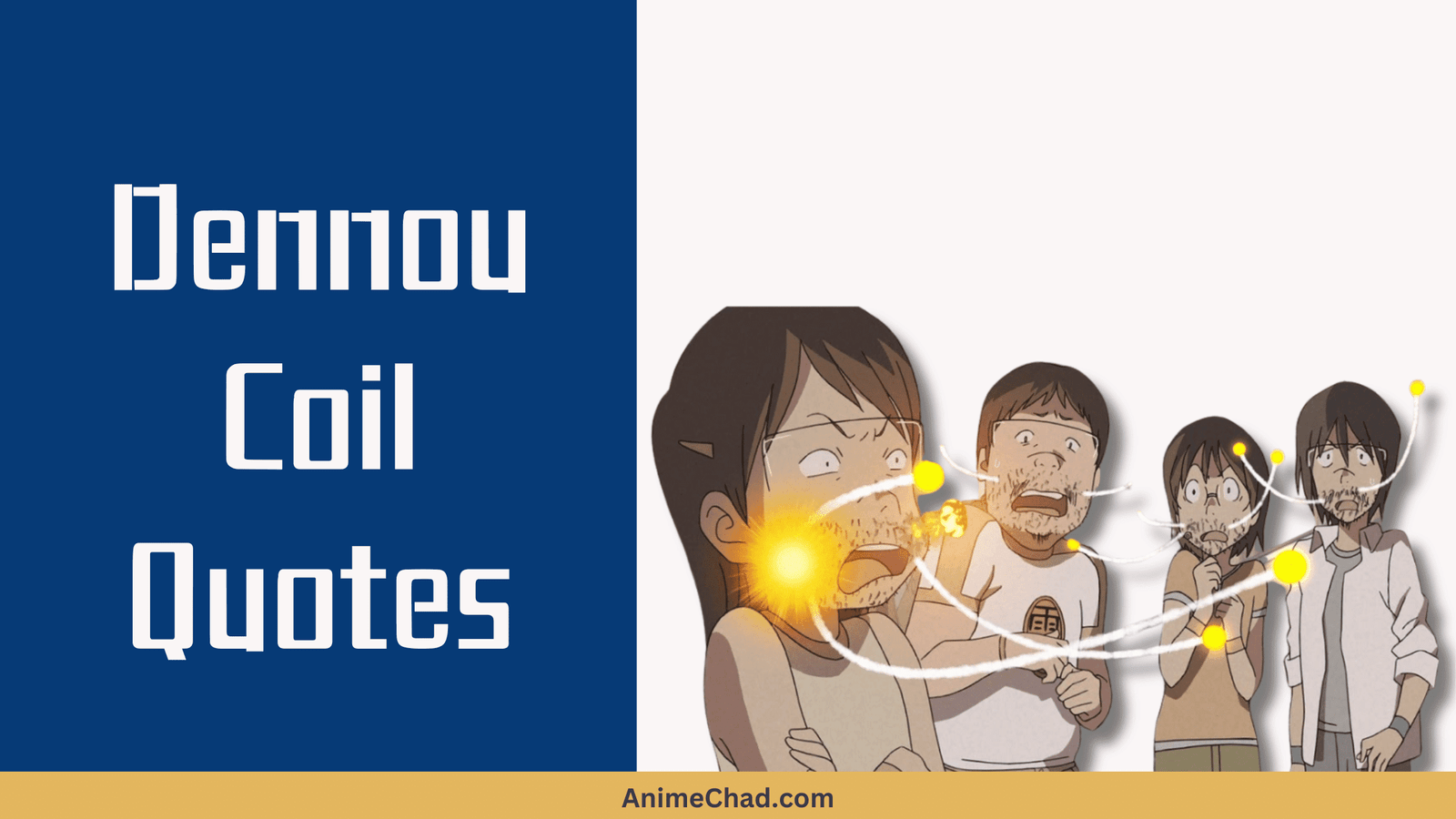Akira is a groundbreaking cyberpunk manga and anime film by Katsuhiro Otomo, following teenage biker Shotaro Kaneda and his friend Tetsuo Shima in a dystopian Neo-Tokyo ravaged by corruption and psychic powers. The series delves into themes of youth rebellion, the corrupting nature of power, government inefficiency, identity crisis, and cycles of destruction and rebirth.
This curated list of the best 25 quotes draws from canonical manga and anime sources, showcasing emotional depth, character growth, and connections to these broader themes across various story arcs.
The future is not a straight line. It is filled with many crossroads. There must be a future that we can choose for ourselves
(Anime Film)
Kiyoko
Espers’ prophecy highlights free will amid chaos, emphasizing themes of choice and hope in a deterministic world.
He’s not your friend, he’s ours! If somebody’s gonna kill him, it should be us!
(Anime Film)
Shotaro Kaneda
Kaneda’s protective outburst during a gang clash reveals his loyalty, marking early bonds before power corrupts them.
I’ll be in charge of the heroics. So, if you need any saving, just ask, Kanny
(Anime Film)
Tetsuo Shima
Tetsuo’s taunt post-awakening shows resentment turning to arrogance, illustrating power’s role in fracturing friendships.
You want me to enroll in that kindergarten and live happily ever after, huh?! Be quiet, do what you’re told, take your medicine every day
(Anime Film)
Tetsuo Shima
Rebellion against authority exposes youth alienation, connecting to themes of societal control and personal defiance.
Kaneda, you’ve always been a pain in the ass, y’know. You’ve been telling me what to do since we were kids. You always treat me like a kid
(Anime Film)
Tetsuo Shima
Emotional confrontation underscores Tetsuo’s inferiority complex, driving his destructive character arc toward independence.
It was too difficult for Tetsuo… of course, too difficult for us. And for Akira
(Anime Film)
Takashi
Reflective on psychic burdens, this ties to themes of overwhelming power and the tragedy of lost innocence.
Hah! You don’t like what you’re hearing, do ya? Makes you angry? So what are you gonna do now? Well, Kaneda? WHAT ARE YOU GONNA DO NOW?!?!
(Anime Film)
Tetsuo Shima
Taunting in battle escalates rivalry, highlighting power’s emotional corruption and Tetsuo’s vengeful growth.
Something seemed strange the second I saw his face. It’s odd. He was wearing what looked like a white hospital gown. He acted like a different person
(Anime Film)
Kai
Observation of Tetsuo’s change evokes unease, symbolizing identity loss and the horror of transformation.
I customized that bike for myself
(Anime Film)
Shotaro Kaneda
Pride in his motorcycle during a chase reflects youthful rebellion and personalization in a conformist society.
All right, the story is, you and your friends went out at night on your bikes to visit your dying mother. Another bunch of biker hooligans called the Clowns attacked you
(Anime Film)
Officer A
Sarcastic cover-up exposes government corruption, adding irony to themes of authority’s inefficiency.
The power… It’s overwhelming me!
(Manga Vol. 1)
Tetsuo Shima
Tetsuo’s awakening cry captures fear and exhilaration, marking the start of his tragic descent into madness.
You’re too impatient, Tetsuo. Power alone won’t make you happy
(Manga Vol. 1)
Shotaro Kaneda
Advice during conflict shows Kaneda’s maturity, linking to themes of power’s hollow allure and friendship’s wisdom.
If you’re going to play with fire, be ready to be burned
(Manga Vol. 1)
Shotaro Kaneda
Warning in a tense moment underscores risk and consequence, reflecting character growth through hard lessons.
The city… it’s collapsing!
(Manga Vol. 1)
Tetsuo Shima
Desperate realization amid destruction evokes apocalyptic dread, tying to rebirth themes post-catastrophe.
You are not a god, Tetsuo! You’re just a child who’s afraid to be alone
(Manga Vol. 1)
Shotaro Kaneda
Confrontation pierces Tetsuo’s delusions, highlighting vulnerability and the emotional weight of isolation.
Twin ceramic rotor drives on each wheel! And these look like computer controlled anti-lock brakes! Wow, 200 horses at 12,000 rpm!
(Anime Film)
Tetsuo Shima
Excited theft of a bike shows youthful thrill, contrasting later arcs’ darkness with early innocence.
If you want one so bad, then steal one yourself
(Anime Film)
Shotaro Kaneda
Playful challenge to Tetsuo reveals camaraderie, evolving into deeper rivalry as power dynamics shift.
Why do you always have to try and save me? I could have handled it on my own
(Anime Film)
Tetsuo Shima
Resentment in a rescue scene builds Tetsuo’s independence arc, connecting to themes of dependency and rebellion.
My job isn’t to believe or disbelieve. It is to act or not act!
(Anime Film)
Colonel Shikishima
Duty-driven statement amid crisis shows military rigidity, critiquing corruption and blind obedience.
And now you’re a boss, too… of this pile of rubble
(Anime Film)
Shotaro Kaneda
Sarcastic jab at Tetsuo’s empire mocks false power, emphasizing destruction’s futility and emotional fallout.
KANEDA!
(Anime Film)
Tetsuo Shima
Desperate scream in climax conveys agony and connection, underscoring fractured bonds’ lasting impact.
That’s Mr. Kaneda to you, punk!
(Anime Film)
Shotaro Kaneda
Defiant retort in battle asserts leadership, showing Kaneda’s growth from delinquent to reluctant hero.
You called for me, didn’t you? And I heard you
(Anime Film)
Shotaro Kaneda
Poignant reunion moment evokes redemption, linking to themes of friendship enduring through chaos.
This has GOT to be a trap
(Anime Film)
Shotaro Kaneda
Cautious insight during infiltration highlights intuition, developing Kaneda’s strategic maturity.
Man is incapable of seeing past the end of his nose. He huddles upon the ground staring at his own feet. It is only when he considers his own mortality that he clings to whatever God or Buddha offers him hope
(Manga Vol. 4)
Unnamed Narrator (Attributed to Series Reflection)
Philosophical musing on human limits ties to mortality themes, prompting reflection on existential growth.

